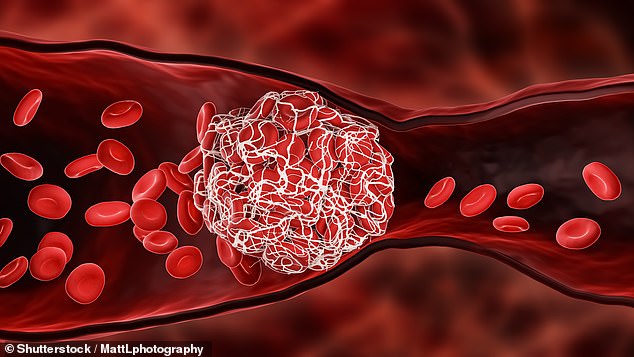A pioneering drug that can rapidly restore vital blood flow in stroke patients will save thousands of lives each year.
The thrombolytic therapy tenecteplase has been shown in trials to be more effective and cheaper than similar drugs already on the market.
Tenecteplase, which dissolves blood clots and prevents more clots from forming after a stroke, will now be given to patients across the country after being given the green light by the NHS spending watchdog on Friday.
Research shows the drug is as effective as alteplase, an anti-stroke drug available on the NHS.
But tenecteplase is much cheaper to produce, potentially saving the NHS millions of pounds each year.
A pioneering drug that can rapidly restore vital blood flow in stroke patients will save thousands of lives each year (file image)
Both alteplase and tenecteplase are used to treat ischemic strokes, which occur when a blockage cuts off the blood supply to part of the brain.
Medications are given a few hours after the onset of stroke symptoms.
Both work by activating the production of plasmin, an enzyme that breaks down blood clots, to restore blood flow.
But studies show that tenecteplase, a genetically modified version of alteplase, is better at attacking specific clot proteins and lasts longer in the body.
The drug can also be used to treat suspected heart attacks if given within six hours of the onset of symptoms.
In England, approximately 100,000 people are hospitalised each year for a stroke, and 85 per cent of them suffer an ischaemic stroke.

In England, around 100,000 people are hospitalised annually for a stroke, and 85 per cent of them suffer an ischaemic stroke (file image)
One million more people in England are living with the consequences of a stroke.
“Stroke is a leading cause of death, so it’s important that patients receive treatments that can help reduce its effects as quickly as possible,” said Helen Knight of the National Institute for Health and Care Excellence (NICE), which decides which drugs the NHS will fund.
‘The NHS could save millions of pounds by switching to the new treatment, which would be a very effective use of taxpayers’ money.’


